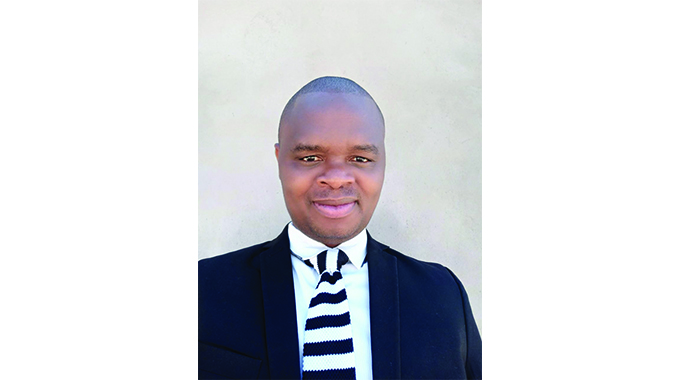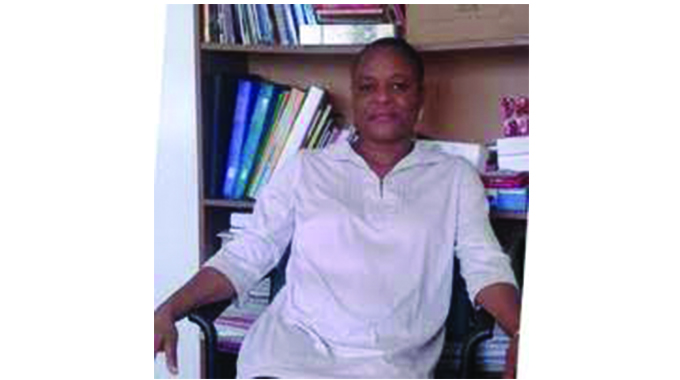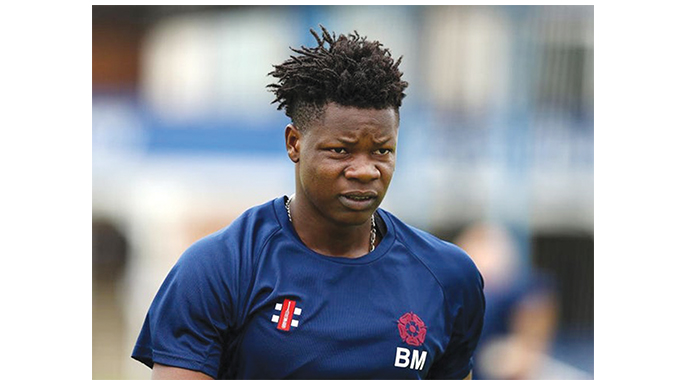Give a voice to silent victims of abuse

Thandeka Moyo-Ndlovu, Health Reporter
THOUSANDS took to social media on Sunday to wish the men in their lives a happy Father’s Day but only a handful can comprehend the struggles that Zimbabwean males are going through especially as victims of sexual gender-based violence (SGBV).
For the longest of time, GBV defined as harmful acts directed at an individual based on their gender has been only associated with women yet recent statistics show that men too are victims of the scourge especially sexual abuse.

Mr Ziphongezipho Ndebele
Standards of masculinity in patriarchal society have also deterred the same men from getting help after the abuses which had left them prone to perpetrating abuse on women and suicide. The recently released Zimbabwe Vulnerability Assessment Committee report shows that incidence of spousal abuse was high among spouses and sexual abuse was the least reported, especially by men.
Activists believe more men are silent victims of sexual abuse but fear being ridiculed by society hence the silence.
Statistics show that over 64 percent of abused men in Zimbabwe do not report as many associate seeking help with weakness, oblivious of effects that come with the culture of silence. For Thabani* a GBV survivor, his abuse started when he lost his job and failed to provide for his family.
He said his happily ever after marriage crumbled when he had to rely on his wife for upkeep while trying to find his feet.
“Her friends kept pushing her to ensure that I brought money somehow and that led to conflict. It started as emotional abuse as she would carelessly throw hurtful words at me until it came physical and then she was even saying I didn’t deserve to be her husband as I was nothing,” says Thabani.
He says his wife was in the habit of slapping him whenever he questioned her behaviour until he decided to seek help.
“I soon realised that the amount of abuse I had taken from my wife was toxic and could lead me to suicide. I then heard of Padare Men’s Forum and have undergone counselling to help me rise and face my challenges head one without the fear of being ridiculed for speaking out,” he adds.
Another survivor Jasper* says special expectations make it hard for men to cry for help when abused forcing them to abuse drugs or even consider suicide.
He says abusive men have been abused as well hence the need to reach out to them as means of ending violence in the country.

Ms Lindile Ndebele
“My abusive relationship made me feel useless and sadly everyone in my circle always said real men cannot be abused. These sentiments made it so difficult for me to open up or seek help because I knew I would be a laughing stock,” he says.
“I once tried seeking help from the police and they made it clear that they do not believe women can abuse men. We really need help and deliverance from abusive partners before we harm ourselves.”
Local psychologist Ms Jacqeline Nkomo says male GBV survivors have never been taken seriously by anyone including communities.
She said society expects men to be macho, strong and never cry but they are emotional human beings too and must be given a platform to open up.
“Patriarchy also makes it hard as it states that men are the heads who should be able to come up with solutions. Effects of abuse include low self-esteem, anger, abusive tendencies and depression,” said Ms Nkomo.
“People who suffer abuse silently become drug addicts and are always angry at anything and everyone. Abused people tend to be abusers whenever they are in a position of power or have other people they can abuse as well.”
Ms Nkomo said the solution would be allowing both men and women to freely seek help when abused so they are helped before they turn into abusers themselves.
Padare Men’s Forum programmes officer, Mr Ziphongezipho Ndebele said the increase of cases is a sign that men are now opening up.
“This is a clear indicator that men are now speaking out about the abuses they face in the hands of women. Men are often viewed as macho which makes it difficult for them to report when they are abused because we have handled quite a lot of these including sexual abuse of men,” said Mr Ndebele.
He said the major problem was that society is not yet ready to accept that men too can be abused.
Mr Makhosi Sibanda, the executive producer of Men’s Conference, a digital forum for men, said there have been efforts to empower men to open up although they may still prefer to suffer in silence.
“We still need platforms where men can express their fears, worries and sorrows without judgment. Support groups for men are not as vibrant as those for women.
“Men have a few people they can open up to and that is why many would rather resort to alcohol or suicide that reveal they are struggling with abusive female intimate partners,” he said.
“The few men who have come out are just a handful because the reality on the ground is scary. As we continue fighting all kinds of GBV it will be good to consider helping men as well because they too are suffering and if left unaddressed the development will breed more abusers for generations to come.”
Local gender activist Ms Lindile Ndebele said she was happy that men were finally opening up as GBV is a human right violation which should be curbed from all angles.
“I don’t think cases are up, men are now attending these programmes which give them courage to report because GBV has never spared them. These cases are also fueled by Covid-19 induced stresses like loss of employment,” said Ms Ndebele.
“I am happy for men, they are coming out and if they continue coming out, they will be protected. It is not only women who are always on the receiving end although statistics show that a majority of GBV survivors are women.”
She said people should be trained on how to be professional, especially members of the police.
Fathers Against Abuse founder Mr Alois Nkomazana said research in Zimbabwe has proven that sexual abuse is prevalent in boys while grown up men suffer emotional and physical abuse.
“We had so many cases of boys who have been abused by house helpers, sex workers and other older women who take advantage of their vulnerability. Some boys are forced to watch pornography before they are forced to engage in sexual activities,” said Mr Nkomazana.
“We are also dealing with boys who have contracted sexually transmitted diseases due to abuse by women. Abuse for men also emanates from gender roles for example providing for the family under economic hardships.”
Mr Nkomazana says tackling GBV needs everyone to rethink social expectations for men and women which end up making them prone to abuse.
“We also have cases of children ganging up with their mothers against their abusive fathers. GBV is a product of culture and we need to change in how we socialise these boys so they are modelled in a way that will ensure they protect women and also be able to open up when they face challenges. More than 65 percent of people who commit suicide in Zimbabwe are men and it is a sign we not have platforms for them to open up about their challenges,” he adds.
He also said teachers should also take part in molding responsible men by the choice of words they use when approached for counsel and help.-@thamamoe








Comments